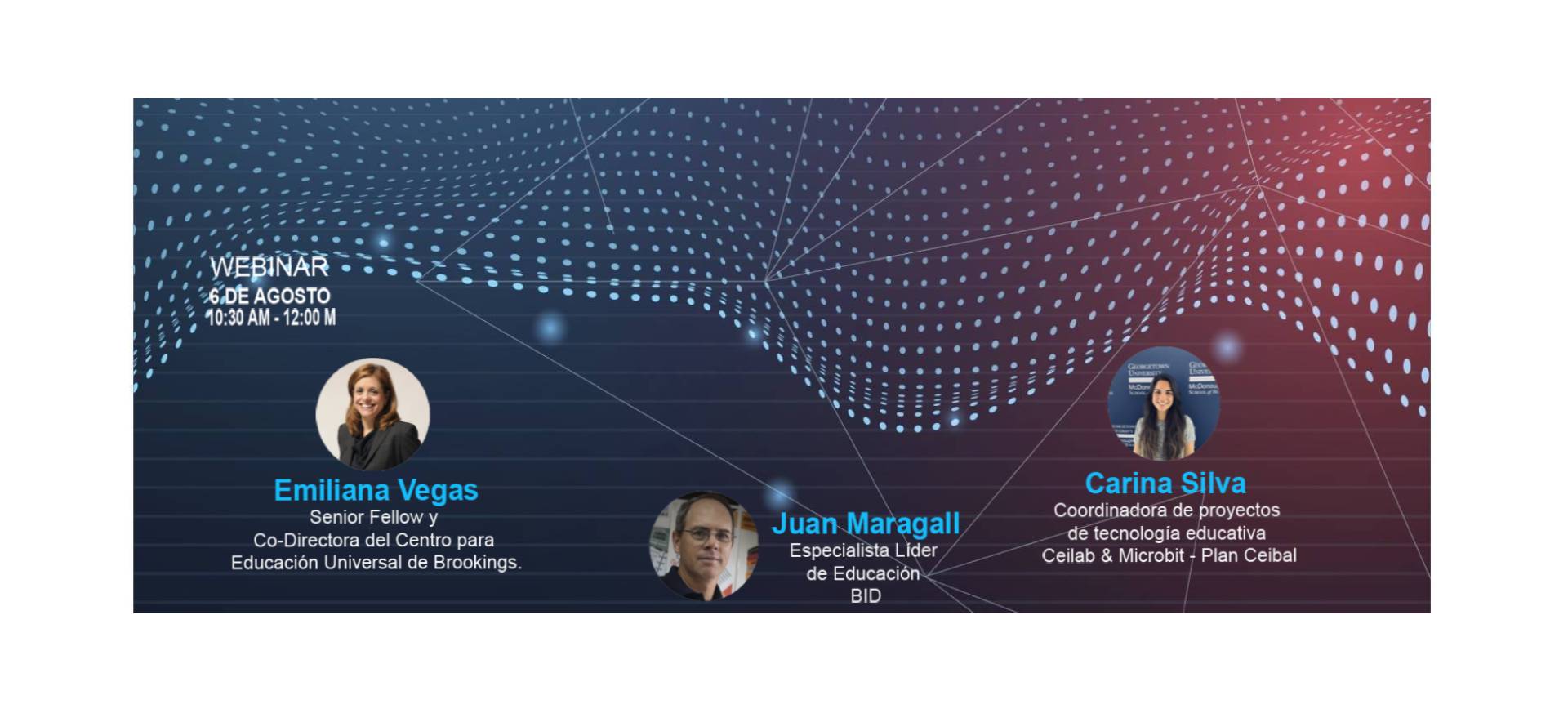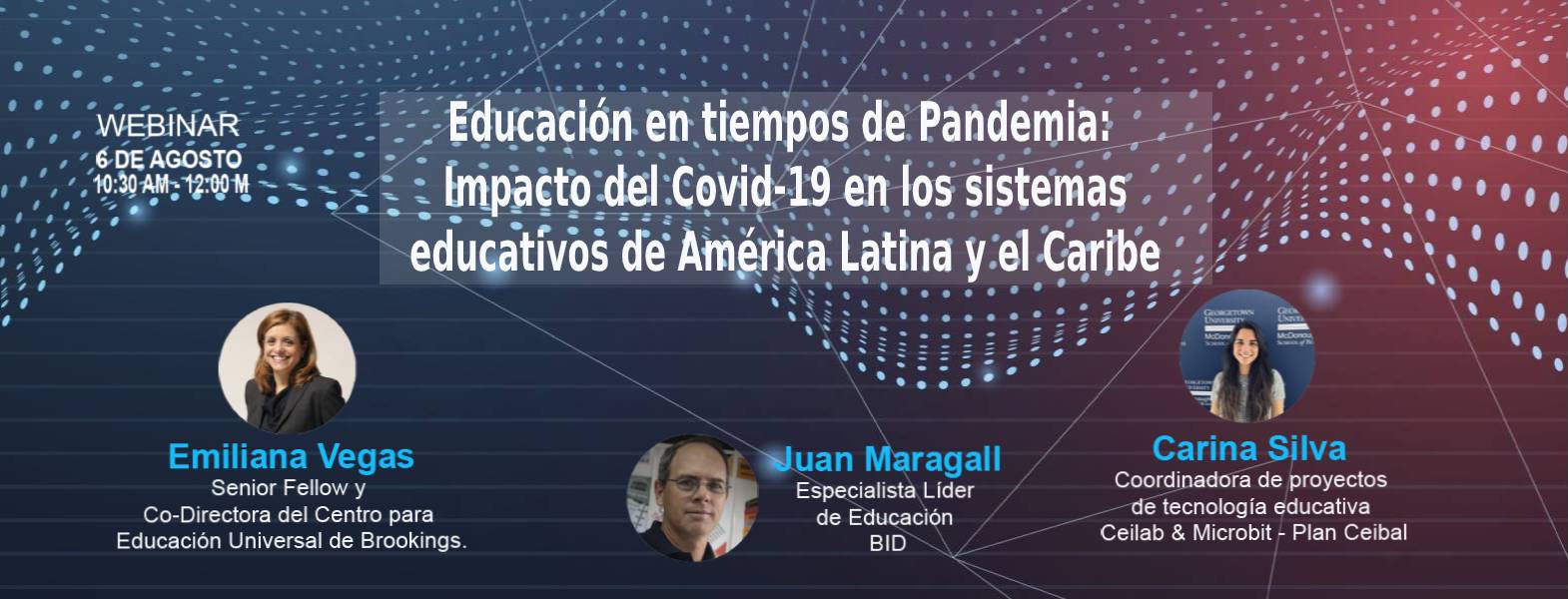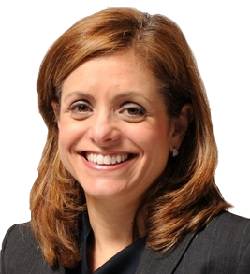

Education has been one of the most affected sectors by the COVID-19 pandemic. According to UNESCO, there are more than 1 billion students affected globally, which accounts for more than 60% of the student population and more than 15% of the world’s population. In addition, there are several obstacles that this organization points to, such as: deficiencies in remote learning, the cost of the digital gap (understood as the disparity in access to technology or Internet), and the role that schools play in the health and well-being of students.
According to the Inter-American Development Bank (IDB), Latin America and the Caribbean is one of the regions where there is a great disparity in technology and poor readiness as regards digital infrastructure, deficiencies in remote learning, the costs of the digital divide, as well as the important role that schools play in students’ health and well-being. The IDB Education Division, through the Information Systems and Educational Management Project (SIGED), has worked for more than two years with the Latin American and Caribbean countries.
SIGED aims to identify how day-to-day educational management processes are carried out and to determine the level of automation and digital use, in order to improve the efficiency of educational management. Among the basic digital conditions established by the project are the availability of connectivity in schools, digital platforms, virtual tutoring, digital resource packages and a central repository of digital contents. A survey conducted by SIGED revealed that most countries in the region do not have those minimum digital conditions, and therefore they are not in a position to provide online education to all students. The project determined that Uruguay is the only country in the entire region that has the appropriate digital conditions.
In addition, experts are concerned that students are not learning at the same level as face-to-face classes and that there is a considerable delay in the knowledge acquired, with some of them estimating that such delay reaches even one year.
Finally, many families have been affected because schools represented an important source of food, and families have also been affected because many parents do not have the knowledge or psychopedagogical tools to support their children in virtual academic environments.
In order to understand the current educational reality of the region and the strategies that are being adopted by certain countries, a proposal has been made to carry out this Webinar so as to gain knowledge about the main challenges, characteristics of the sector and opportunities of the educational sector following the pandemic generated by COVID-19, and which also serves for the exchange of ideas on the best practices adopted by the region.
Gain knowledge about the main challenges, impacts, characteristics and opportunities of the education sector within the context that may arise after the COVID-19 pandemic.
Target: Actors from the public and private sectors, and academicians interested in the education sector.
Format: Virtual 90-minute conference (60 minutes for speakers and 30 minutes for questions and answers).
Date and time: 06 August, 10:30 am Caracas time, 11:30 am Montevideo time.
Opening session
| 10:30-10:35 | Welcome speech by:
|
| Moderator: Ambassador Oscar Hernández, Director of Relations for Integration and Cooperation | |
Speakers:
|
|
| 10:35-10:55 | Emiliana Vegas: Senior Fellow and Co-Director of the Brookings Centre for Universal Education
Educational innovation opportunities that have emerged and digitization of education in Latin America and the Caribbean |
| 10:55-11:15 | Juan Maragall: Leading Specialist in Education (IDB)
Impact of the pandemic on educational indices in the region: How the virus has impacted schooling levels, and IDB recommendations for opening schools |
| 11:15-11:35 | Carina Silva: Coordinator of educational technology projects. Ceilab & Microbit, Ceibal Plan
The process to return to face-to-face classes in Uruguay and the initiatives that have been developed by the Ceibal Plan and Microbit. |
| 11:35-12:00 | Question and answer session |

Emiliana Vegas: Senior Fellow and Co-Director of the Brookings Centre for Universal Education

Juan Maragall: Leading Specialist in Education (IDB)

Carina Silva: Coordinator of educational technology projects. Ceilab & Microbit, Ceibal Plan
